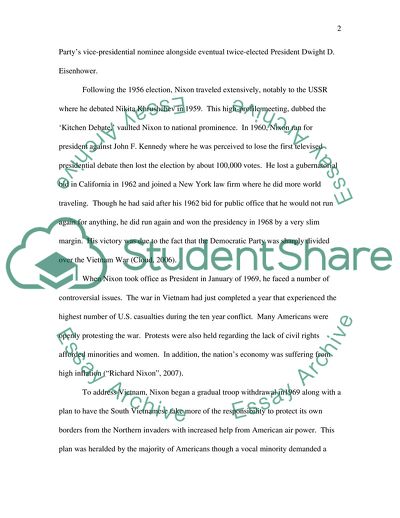Cite this document
(Political Life of President Richard Nixon Essay Example | Topics and Well Written Essays - 1250 words, n.d.)
Political Life of President Richard Nixon Essay Example | Topics and Well Written Essays - 1250 words. https://studentshare.org/biographies/1706016-president-richard-nixon
Political Life of President Richard Nixon Essay Example | Topics and Well Written Essays - 1250 words. https://studentshare.org/biographies/1706016-president-richard-nixon
(Political Life of President Richard Nixon Essay Example | Topics and Well Written Essays - 1250 Words)
Political Life of President Richard Nixon Essay Example | Topics and Well Written Essays - 1250 Words. https://studentshare.org/biographies/1706016-president-richard-nixon.
Political Life of President Richard Nixon Essay Example | Topics and Well Written Essays - 1250 Words. https://studentshare.org/biographies/1706016-president-richard-nixon.
“Political Life of President Richard Nixon Essay Example | Topics and Well Written Essays - 1250 Words”. https://studentshare.org/biographies/1706016-president-richard-nixon.


